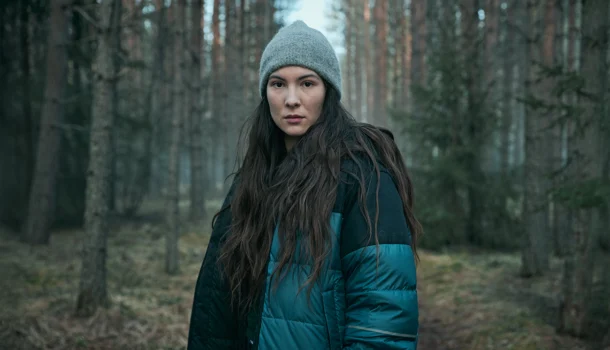There’s a recurring figure that haunts narratives about serial killers: the investigator as fragile as the criminal he pursues. In “The Glass Dome”, Camilla Läckberg attempts to recreate this worn archetype with a psychological gloss that mimics depth but sinks into the familiar. As if guided more by scriptwriting manuals than genuine creative impulse, the author lays out a gallery of motivations that oscillate between the pathetic and the contrived: hatred of beauty, punishment of ugliness, resentment toward talent, or a punitive desire to redeem the world for others’ sins. These justifications reveal less about the characters and more about a frustrated attempt to infuse complexity into a plot that seems to mistrust the audience’s intelligence. The result is a series dressed in depth to disguise its surface-level intentions.
In trying to tie personal trauma to criminal logic, the script leans on the past as an emotional crutch but fails to build a genuinely engaging narrative arc. The supposed psychological impact is reduced to catchphrases and recycled traumas. Nothing escapes predictability: the camera work strives for agility but falters with uneven pacing, and the editing lacks the suspense and mystery needed to sustain tension. Directors Henrik Björn and Lisa Farzaneh face the uphill task of breathing coherence into a script stretched beyond reason, filled with overly functional dialogue and scenes that seem drawn from a production spreadsheet, not artistic instinct.
“The Glass Dome” also reflects the limitations of the streaming-era suspense formula: episodes engineered to end with impact, rarely earned; rushed ellipses; and a relentless recycling of dilemmas that are never given the time to ripen. Protagonist Lejla Ness embodies this contradiction. Her backstory — abducted as a child and confined in a glass box — demands nuanced treatment, yet she is crafted for instant empathy while remaining distant, almost robotic. The script hints at complexity that never comes to fruition, as if hoping the viewer will fill the gaps with goodwill.
Upon returning to the sleepy Swedish town of Granås after the death of her adoptive mother, Lejla ought to be immersed in an atmosphere thick with suspicion and memory. Instead, the show reveals the core of its mystery almost immediately, extinguishing any real hope for a surprising twist. Rather than being layered, the suspense dissipates in the opening scenes, as if the plot lacks the stamina to delay gratification. What’s left is a structure undermined by storytelling choices that favor quick payoff over emotional durability.
Even the few moments when actors Léonie Vincent and Johan Hedenberg manage to inject some vitality are undermined by a script that gives them too little to work with. The actors’ commitment, while evident, isn’t enough to rescue a series that stakes everything on a psychological drama aesthetic without achieving basic internal consistency. The cold visuals, the faux-existential mood, the soundtrack insisting on dictating the viewer’s emotions — everything seems engineered to conceal the absence of a true core.
By trying to straddle both police thriller and psychological drama, the series ends up failing at both. Perhaps the clearest evidence lies in how it handles the theme of trauma — not as a nuanced concept to be explored, but as a decorative narrative prop. Each traumatic element feels calculated to prompt quick sympathy rather than deep contemplation. There’s no discomfort, no ambiguity, no shadow — just the didactic drag of something that wants to appear profound but avoids the risk of plunging into darkness.
“The Glass Dome” may have aspired to be a study of characters haunted by ghosts of the past, but what it delivers is a montage of formulaic pain. What lingers after the viewing is not unease, but fatigue — not the fatigue provoked by difficult or unsettling themes, but that of a story that mistakes repetition for depth and assumes that the aesthetic of suffering is enough to make an impact. The real mystery in this production is not in the plot, but in its belief that surprise still exists when everything was revealed in the first move.
Series: The Glass Dome
Creator: Camilla Läckberg
Director: Henrik Björn and Lisa Farzaneh
Year: 2025
Genres: Crime/Drama
Rating: 8/10

